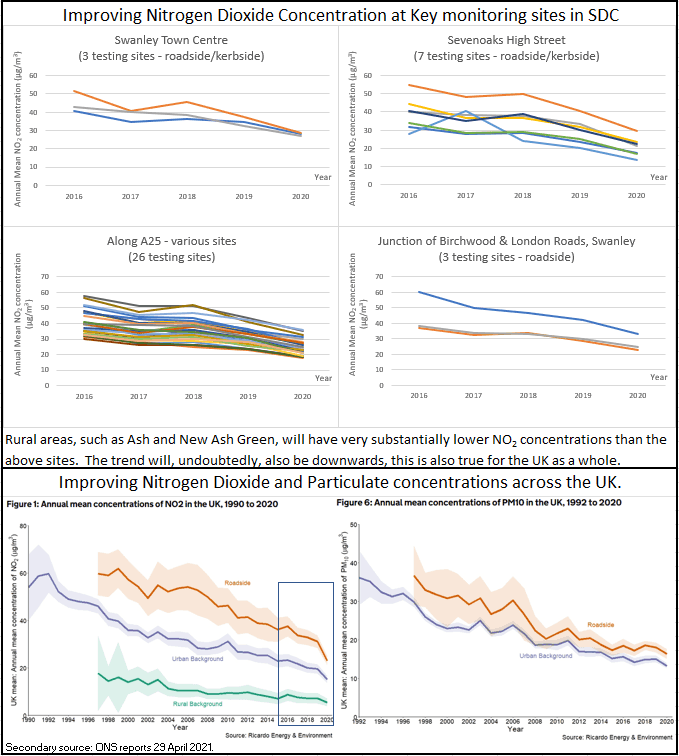Air Quality Action Plan (Part 1 - Full Council Feb 22nd 2022 - Twosday)
Synopsis of comments on Air Quality, at full council 22/02/2022.

The thrust of the consultation on the clean air strategy (which mostly concerns the more built up areas of our district) looks like it strikes the right balance. It is not alarmist and, for the most part, it makes light touch proposals, but equally it does not seek inaction or to ignore issues on the matter of clean air.
I recently walked through Sevenoaks High Street with an asthmatic family member and the report I received is that air quality in Sevenoaks is noticeably less good than in Ash, but only in very specific locations, such as Sevenoaks High Street. On the other hand these small areas of worse air quality have air which would be typical of most places within London. These limited observations tally with my instincts and the data we were given on air quality.
There was, however, at least one misleading statistic in our paperwork which was an evaluation of the mortality due to polluted air which didn’t ring true (a figure of, effectively, 6% of UK deaths being put down to air pollution). On further inspection it seems there were a number of problems with this statistic, including that the effect of primary smoke exposure from cigarettes was included.
One proposal is for some of our street cleaning vehicles to shift to zero-tailpipe emissions (i.e. electric). This is exactly the right kind of measure.
An aspect of this strategy is that our proposals are intended to align with our climate goals. This is right and would, in my view, preclude any suggestion of seeking to exclude, for example, diesel cars from particular areas. I would not support this. The minority of diesel cars are responsible for a very significant proportion of many important forms of short lived, local air pollution but, in terms of the global and persistent effect of CO2 emissions, diesel cars are marginally better than petrol. What is more, excluding certain types of cars from certain zones is likely to lead some people to pursue actions with ecologically worse outcomes, such as driving larger distances to skirt around excluded zones, potentially contributing to traffic etc.
There is no suggestion that Cabinet intends to pursue ideas such as this, indeed there is every suggestion Cabinet would consider such a move heavy handed and wrong.
The good thing is that the problem of air pollution in the district (and the nation as a whole) has been on an improving trend for some time now (see above graphs).